In May of 2012, I expressed concern about the Max’s Birthday Party EpiPen marketing campaign launched by Mylan Specialty. Both the television commercial and the print ad for that campaign were pulled by Mylan Specialty after the FDA sent a warning letter to Pfizer/Mylan over the ads. A conference call followed between Pfizer and The Office of Prescription Drug Promotion, which occurred on April 20, 2012. You can read my thoughts about that ad campaign by clicking here.
Today, I saw for the first time Pfizer’s new Canadian EpiPen tv commercial, which I’ve shared below along with a transcript of the script. I feel it too misses the mark, in the same way that the Max’s Birthday Campaign failed.
A mother (Trish Magwood) puts out a tray of snacks for her child and two friends.
Mother: To the kids: You can each take two.
If your child has allergies to peanuts or other foods, you know how careful you have to be, but you can’t always be there, so have him carry an EpiPen auto-injector.
EpiPen and EpiPen Junior are shown, with a homemade loaf served for snack next to them.
Scene changes to the three kids eating snacks with their hands, passing the dice, and playing a board game together.
Two out of five children with food allergies have experienced at least one life-threatening allergic reaction, so while you can’t always prevent these reactions, you can be prepared with EpiPen.
For more details, talk to your health care provider or visit epipen.ca.
In my opinion, it’s reckless to show a child with food allergies casually grabbing a snack at a friend’s home like children without food allergies would. The ad clearly implies that the child’s allergens may be in the homemade loaf, which that child may be eating, or may be exposed to from the contaminated dice. This is exactly the sort of situation our children must be instructed to avoid, by eating their own safe snack from home or something approved by their parents in advance, and having everyone wash their hands before returning to the game. This commercial encourages sloppy behavior with the reassurance that “they came prepared with EpiPen.” Even the casual mention of 2 out of 5 children having life-threatening allergic reactions irritates me, as though those reactions are inevitable instead of preventable.
I welcome you to provide your feedback by posting a comment below.
* If you found this post helpful, please use the “Sharing Is Caring” bar (below) to share this post via Facebook or Twitter. If you’re reading this as an e-mail message, you need to jump over to my blog first by clicking here.

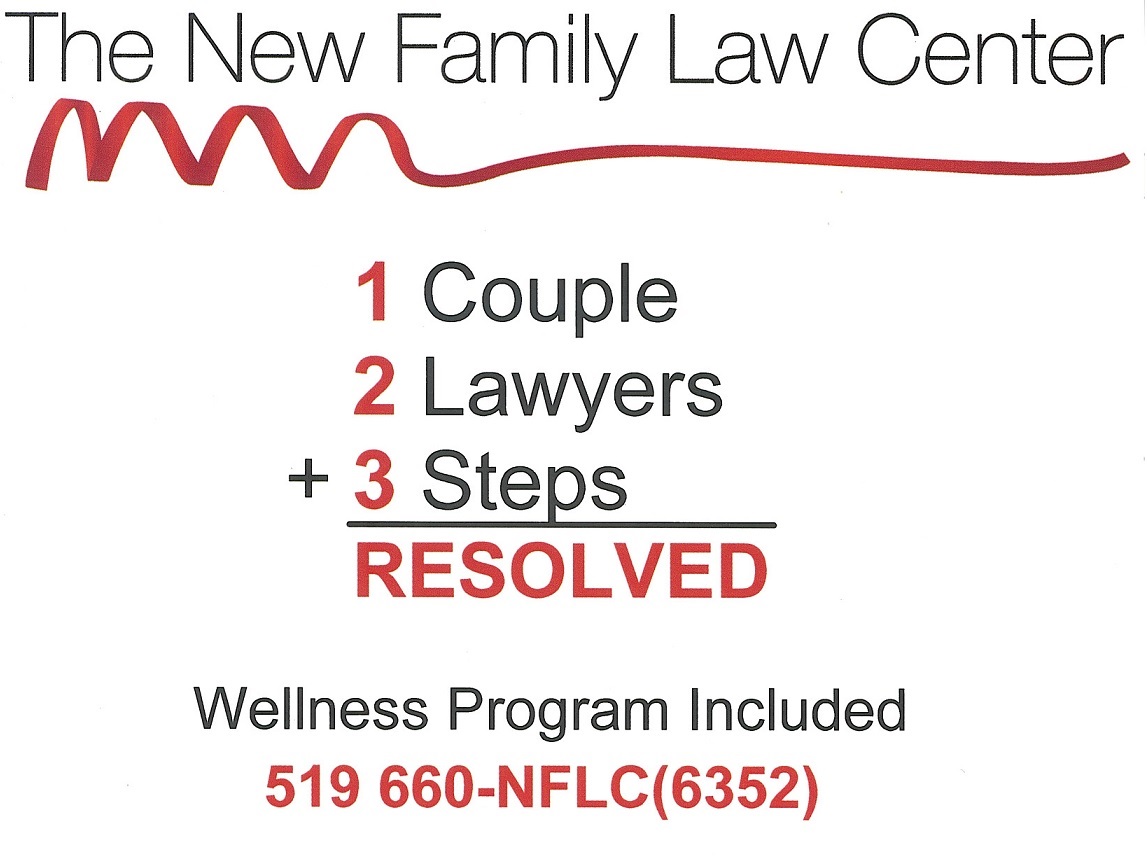


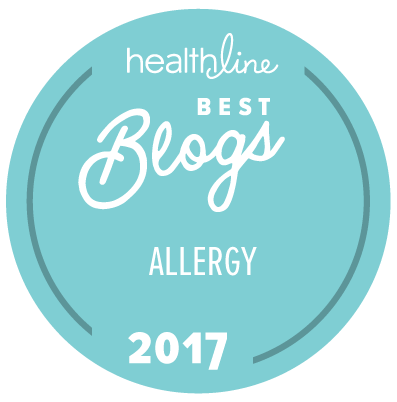
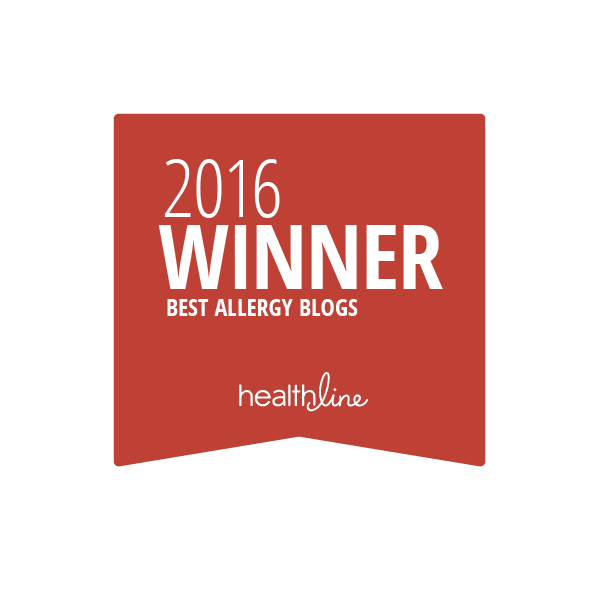
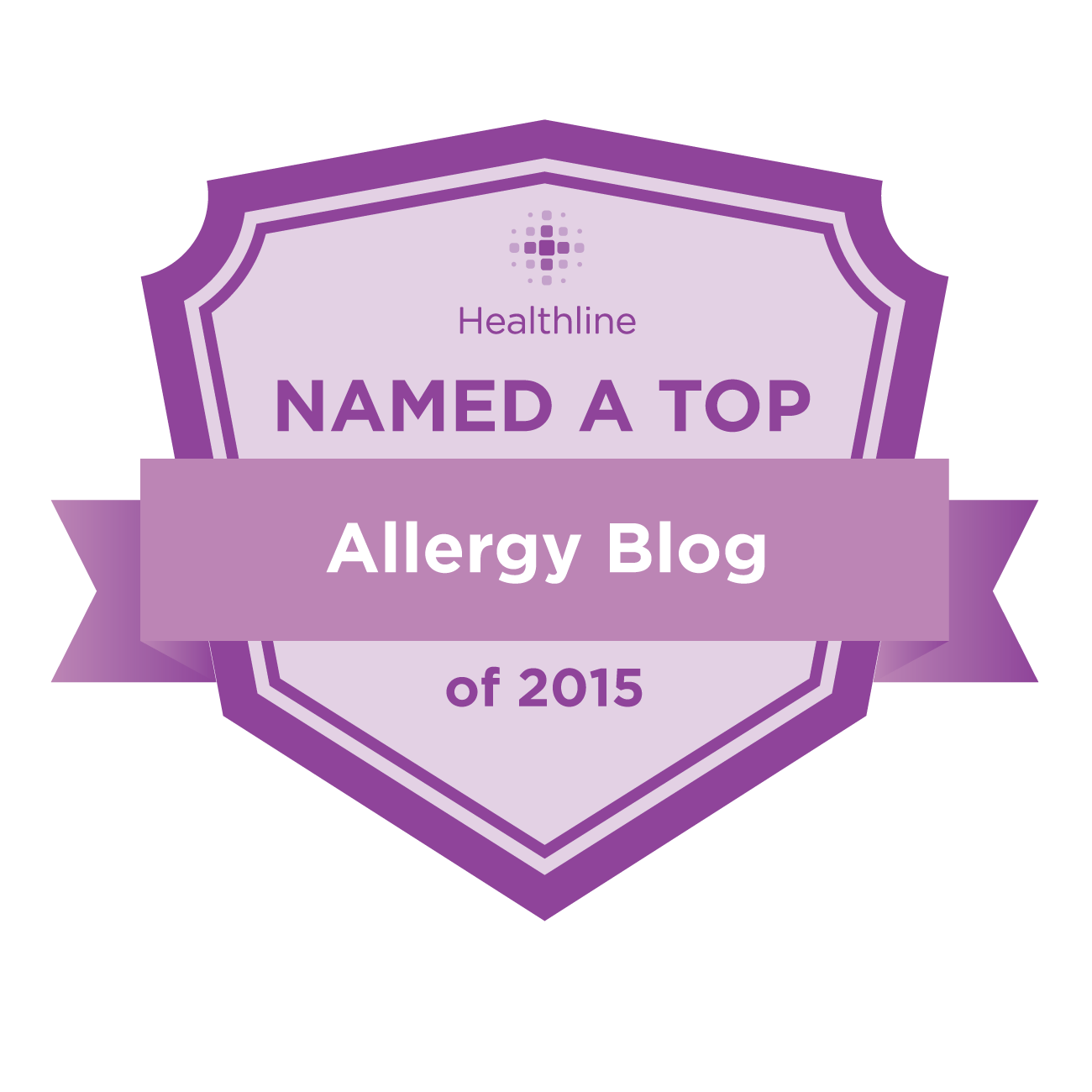
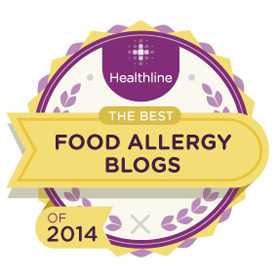

It is extremely disturbing when even the manufacturers of Epi-Pens do not “get” food allergies.
The epi pen is not some magical antedote. There are serious risks involved with its administration. Therefore, we must be vigilent to find out ingredients and take extra precautionary meaures, even if it means calling a restaurant or bakery and questioning the cook or baker about ingredients. If unsure, we should err on the side of caution.
I know sometimes people get offended when we ask to many questions, and some have even called me “overprotective” of my child. But they do not know what we go through every day. Our lives are not the same. They do not know the seriousness of these allergies and it is not their child’s life that is in danger. I rather lose friends and not get invited again than to risk my child. Furthermore, these ads make it like the Epi Pen is a quick fix, but it is a last resort for a potentially life threatening situation and discretion must be used before administering because the packet does list some potentially serious side effects. We need to weigh the risks against the benefits and the situtation that we are dealing with and make the best judgment call possible that will be in the best interests of our child.
God Bless all of you and I am praying for a cure to this senseless epidemic on our children.
I agree with you completely. It gives that false sense of safety as long as you have your epi pen available. My 3 year old would not even grab that snack without asking if it had peanuts in it. If we lived like this, we would be using epi pens weekly and hoping and praying that we make it to a hospital. Who wants epinephrine in their child’s body if it doesn’t have to be there anyway?
I’m not crazy over this commercial because of the way it suggests–like its predecessor–that a lack of vigilance is okay because Epipen will save the day. I would appreciate some commercials or PSA’s (as some suggested above) from Epipen which remind people to carry their epis and use them.
I wonder sometimes if the Marketing team is more worried about the responses from people who don’t have allergies. I used to think any info that is put out there about food allergies can only help. I’m not sure anymore about this. The ad to me would be the same if someone has high cholesterol and is seen eating a hamburger (but lipitor) in front pocket.. very careless and counting on quick fix. Or Someone who has diabetes eating a bunch of candy and then feeling whooozzy and get’s their insulin. But we do live in a world were there is a medicine for almost everything.. In truth to most people i have met nut allergies get in the way. So i’m not surprised at ad. And with less social responsibility in this world, it’s a challenge for sure. How do we get a commercial with true responses from kids with food allergies.
Of all companies, this one sure should know it’s not that simple. Don’t they make enough money off us? I don’t even see why they need to advertise at all. Maybe their money would be more well spent putting out PSAs on the danger of life threatening allergies. I would have a better attitude towards them.
Here is what the FDA had to say about the Mylan Max’s Birthday Party Campaign. Substitute homemade loaf for birthday cake into it, and I think we have the same situation here:
FDA Sends Warning Letter to Pfizer/Mylan Over EpiPen Ads: http://pharmalive.com/News/index.cfm?articleid=842411&categoryid=57
A conference call between Pfizer and The Office of Prescription Drug Promotion occurred on April 20th in response to the Max’s Birthday Party ad campaign. A written response from Pfizer was due June 7th.
DEPARTMENT OF HEALTH & HUMAN SERVICES Public Health Service
Food and Drug Administration Silver Spring, MD 20993
Ian C. Reed Chairman and Chief Executive Officer Pfizer Inc. 235 East 42nd Street New York, NY 10017
RE: NDA # 019430
EpiPen® and EpiPen® Jr. (epinephrine) Auto-Injectors
MA # 388
WARNING LETTER
Dear Mr. Reed:
The Office of Prescription Drug Promotion (OPDP), Division of Consumer Drug Promotion (DCDP) of the U.S. Food and Drug Administration (FDA) has reviewed a 60-second Direct-to-Consumer broadcast television advertisement (TV ad) distributed by Mylan Specialty, L.P. (Mylan) on behalf of Pfizer, Inc. (Pfizer)1 entitled “Max’s Birthday Party” (EPI12-1003) for EpiPen® and EpiPen® Jr. (epinephrine) Auto-Injectors (EpiPen). The TV ad was submitted as a complaint to the OPDP Bad Ad Program. The TV ad is false and misleading because it overstates the efficacy of the drug product. Thus, the TV ad misbrands the drug in violation of the Federal Food, Drug, and Cosmetic Act (FD&C Act), 21 U.S.C. 352(n), and FDA implementing regulations. 21 CFR 202.1(e)(6)(i). This violation is particularly alarming from a public health perspective because the misleading presentation of the use of EpiPen may result in serious consequences, including death.
Background2
Below is the indication and summary of the most serious and most common risks associated with the use of EpiPen. According to the FDA-approved EpiPen product labeling (PI) (in pertinent part):
EpiPen® and EpiPen® Jr Auto-Injectors are indicated in the emergency treatment of allergic reactions (Type I) including anaphylaxis to stinging insects…and biting insects…allergen immunotherapy, foods, drugs, diagnostic testing
1 Mylan Specialty, L.P. (f/k/a Dey Pharma, L.C.) holds the exclusive license from Meridian Medical Technologies, Inc, a subsidiary of Pfizer, to market, sell, and distribute EpiPen in the United States. 2 This information is for background purposes only and does not necessarily represent the risk information that should be included in the promotional piece cited in this letter.
Reference ID: 3135644
Ian C. Reed Page 2 Pfizer Inc. NDA # 019430 / MA # 388
substances…and other allergens, as well as idiopathic anaphylaxis or exercise-induced anaphylaxis. EpiPen® and EpiPen® Jr Auto-Injectors are intended for immediate administration in patients, who are determined to be at increased risk for anaphylaxis, including individuals with a history of anaphylactic reactions. …
EpiPen® and EpiPen® Jr Auto-Injectors are intended for immediate self-administration as emergency supportive therapy only and are not a substitute for immediate medical care.
EpiPen is associated with a number of serious risks. According to the PI, EpiPen has Warnings pertaining to the administration, accidental injection, sulfite allergy, and cardiovascular disease, and proper use and storage conditions. In addition, there are Precautions regarding the need for immediate medical care after using EpiPen; caution in patients who have cardiac arrhythmia, coronary artery or organic heart disease; greater risk of developing adverse reactions after epinephrine administration in patients who have hyperthyroidism, cardiovascular disease, hypertension, or diabetes, in elderly, pregnant women, or pediatric patients who require epinephrine doses greater than 0.01 mg/kg; caution with concomitant administration of cardiac glycosides, diuretics, anti-arryhythmics, alpha-and beta-adrenergic blocking agents, tricyclic antidepressants, monoamine oxidase inhibitors, levothyroxine sodium, and certain antihistamines.
Adverse reactions observed with EpiPen are anxiety, apprehensiveness, restlessness, tremor, weakness, dizziness, sweating, palpitations, pallor, nausea and vomiting, headache, respiratory difficulties, arrhythmias, hypertension, and angina.
Overstatement of Efficacy
Promotional materials are misleading if they contain representations or suggestions that a drug is better or more effective than has been demonstrated by substantial evidence or substantial clinical experience. The TV ad includes the following presentation (bolded emphasis original):
• Mother: “Excited for Max’s birthday party? Should be pretty awesome.”
• Son: “Yeah!”
• Mother: “Even with your peanut allergy and a cake made of who-knowswhat.”
SUPER (over visual): EpiPen® (epinephrine) Auto-Injector can’t eliminate the risk of anaphylaxis. [frames 1 to 2]
• Mother: “Because we’re prepared, right Jake?”
• Son: “Yup!”
• Mother: “With EpiPen.”
Reference ID: 3135644
Ian C. Reed Page 3 Pfizer Inc. NDA # 019430 / MA # 388
SUPER (over visual): Be prepared. With EpiPen®. EpiPen® (epinephrine) Auto-Injector can’t eliminate the risk of anaphylaxis. [frame 3]
The overwhelming impression conveyed by this presentation in the TV ad is that EpiPen alone can provide assurance that a child who has a history of life-threatening allergic reactions does not need to worry or take precautionary measures to avoid exposure to allergens. Specifically, the TV ad misleadingly suggests that a child who has a peanut allergy can take a chance eating a piece of birthday cake with unknown ingredients and feel completely free from worry about any potential risk of anaphylaxis if prepared with EpiPen. This claim is misleading because it implies that EpiPen alone obviates the need for taking precautionary measures and provides protection against any potential risks due to exposure to an allergen, when this has not been demonstrated by substantial evidence or substantial clinical experience. According to the INDICATIONS and USAGE section of the PI (emphasis added), “EpiPen® and EpiPen® Jr Auto-Injectors are intended for immediate self-administration as emergency supportive therapy . . . .” In addition, the What is the most important information I should know about EpiPen® and EpiPen® Jr Auto-Injector
section of the FDA-approved Patient Labeling states (bolded emphasis original, underlined emphasis added), “When you have an allergic reaction (anaphylaxis) use the EpiPen® or EpiPen® Jr Auto-Injector right away and immediately go to your doctor or emergency room for more medical treatment.” We note the SUPER, “EpiPen® (epinephrine) Auto-Injector can’t eliminate the risk of anaphylaxis.” However, this does not mitigate the overall misleading impression. The standard of care to prevent a potentially life-threatening anaphylactic reaction is to take precautionary measures to avoid the allergen.
Conclusion and Requested Action
For the reasons described above, the TV ad misbrands EpiPen in violation of the Federal Food, Drug, and Cosmetic Act (FD&C Act), 21 U.S.C. 352(n), and FDA implementing regulations. 21 CFR 202.1(e)(6)(i).
OPDP acknowledges that, following a teleconference with OPDP and Pfizer on April 20, 2012, during which OPDP outlined its serious concerns with the piece discussed above, Pfizer committed to comply with OPDP’s request to immediately cease the dissemination of this material and any materials with the same or similar claims for EpiPen. We appreciate this commitment and the steps that Pfizer has taken thus far to address some of the issues outlined in this letter.
OPDP requests that Pfizer submit a written response to this letter on or before June 7, 2012, listing all promotional materials (with the 2253 submission date) for EpiPen that contain the same or similar claims for EpiPen described above and discussed during the April 20, 2012, teleconference, and explaining your plan for discontinuing use of such violative materials. Because the violation described above is serious, we request, further, that your submission include a comprehensive plan of action to disseminate truthful, non-misleading, and complete corrective messages about the issues discussed in this letter to the audience(s) that received the violative promotional materials. In order to clearly identify the violative promotional
Reference ID: 3135644
Ian C. Reed Page 4 Pfizer Inc. NDA # 019430 / MA # 388
piece(s) and/or activity and focus on the corrective message(s), OPDP recommends that corrective piece(s) include a description of the violative promotional piece(s) and/or activity, include a summary of the violative message(s), provide information to correct each of the violative message(s), and be free of promotional claims and presentations. To the extent possible, corrective messaging should be distributed using the same media, and generally for the same duration of time and with the same frequency that the violative promotional material was disseminated.
Please direct your response to the undersigned at the Food and Drug Administration, Center for Drug Evaluation and Research, Office of Prescription Drug Promotion, Division of Direct-to-Consumer Promotion, 5901-B Ammendale Road, Beltsville, Maryland 20705-1266 or by facsimile at (301) 847-8444. Please note that the Division of Drug Marketing, Advertising, and Communications (DDMAC) has been reorganized and elevated to the Office of Prescription Drug Promotion (OPDP). OPDP consists of the Immediate Office, the Division of Professional Drug Promotion (DPDP) and the Division of Consumer Drug Promotion (DCDP). To ensure timely delivery of your submissions, please use the full address above and include a prominent directional notation (e.g. a sticker) to indicate that the submission is intended for OPDP. In addition, OPDP recently migrated to a different tracking system. Therefore, OPDP letters will now refer to MA numbers instead of MACMIS numbers. Please refer to MA # 388 in addition to the NDA number in all future correspondence relating to this particular matter. OPDP reminds you that only written communications are considered official.
The violations discussed in this letter do not necessarily constitute an exhaustive list. It is your responsibility to ensure that your promotional materials for EpiPen comply with each applicable requirement of the FD&C Act and FDA implementing regulations.
Failure to correct the violations discussed above may result in FDA regulatory action, including seizure or injunction, without further notice.
Sincerely,
{See appended electronic signature page}
Robert Dean, MBA Division Director Division of Consumer Drug Promotion Office of Prescription Drug Promotion
Reference ID: 3135644
Ian C. Reed Page 5 Pfizer Inc. NDA # 019430 / MA # 388
cc: John Thievon President Mylan Specialty L.P. 110 Allen Road, 4th Floor Basking Ridge, NJ 07920
Reference ID: 3135644
Yes, I agree. Once again they are irresponsible with their advertising. I am sickened and fear the message this puts out. Thank you for making us aware.
Agreed! Epinephrine is not a band aid to reckless behavior, but a life saving tool to be respected when accidents happen. The commercial might have been more effective if is showed the child asking about allergens and then the adult recalling an allergen too late? Or something along those lines that displays a true accident!
I once experienced someone saying to me, “it’s no big deal, you just give him the medication!” I then had to explain that sometimes the medicine doesn’t work or organ failure can leave life long damage and trauma. Oh my Pfizer!
I agree with you! Children should be taught how to help themselves in avoidance of the allergen in the first place. This ad is reckless too. And just “using the epipen” is not the end of it… what about the ER visit that follows (for ususally hours), the (possible) increase in severity of response the body makes every time an epi pen is used, emotional trauma, $ cost to replace an epi pen, etc.